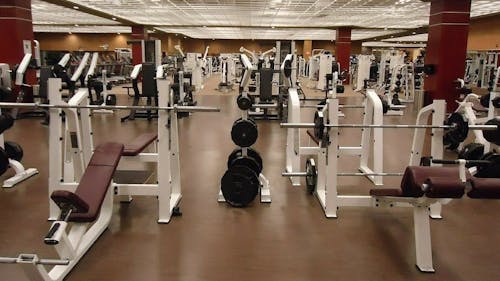Murphy updates state on reopening plans, Rutgers releases coronavirus testing data

As the number of coronavirus disease (COVID-19) cases in New Jersey reached 190,971 with 14,150 deaths this week, according to the New Jersey Department of Health, Gov. Phil Murphy (D-N.J.) gave updates regarding the state’s reopening process.
At his Monday press conference, Murphy discussed the plans to reopen schools this fall. Murphy said state officials divided the state into six regions to monitor the risk of COVID-19 transmission, with the majority of the state being classified as having a moderate risk.
“New Jersey has come a long way in fighting this virus, but we aren’t out of the woods yet,” he said. “But using this health data, our determination is that each region in the state is safe for school reopening with, as we’ve said many times, the right precautions in place at the individual school level.”
The Daily Targum previously reported all pre-K through 12 schools must submit a plan to the Department of Education detailing their reopening plan. As of Monday, Murphy said the Department of Education has received a total of 745 plans from public school districts, private schools and religious schools.
Of these plans, 251 were completed, 389 were reviewed and returned for revision and 105 are awaiting review, he said. So far, 436 plans are seeking a hybrid model of in-person and remote learning, 180 plans are looking to begin the year fully remote and introduce in-person learning later, 59 plans aim to have fully in-person classes and 11 plans are some kind of combination of the above methods.
On Wednesday, Murphy announced an executive order to permit all gyms, health clubs and indoor amusement facilities to reopen beginning Sept. 1. Facilities can only have 25 percent of their normal capacity, with all customers and staff wearing masks, and group fitness classes participants must have 200 square feet of space. He said all equipment must be 6 feet apart and sanitized between uses, and if equipment cannot be moved, staff members must limit the number of machines in use.
“Logs of when all gym members and staff were in the facility must be maintained so should a positive test be received by someone who was in a gym, our contact tracers can get to work notifying other gym-goers who were there with them,” he said.
Additionally, Murphy updated the travel advisory, which calls for visitors entering New Jersey to quarantine for 14 days depending on which state they arrived from. Currently, the advisory applies to visitors from these states: Alabama, Arkansas, California, Florida, Georgia, Hawaii, Idaho, Iowa, Illinois, Indiana, Kansas, Kentucky, Louisiana, Minnesota, Mississippi, Missouri, Nebraska, Nevada, North Carolina, North Dakota, Oklahoma, South Carolina, South Dakota, Tennessee, Texas, Utah, Virginia and Wisconsin.
Yesterday, Senior Vice Chancellor for Clinical Affairs Vicente Gracias and Rutgers Biomedical and Health Sciences Chancellor Brian L. Strom sent a University-wide email to announce the creation of the Rutgers COVID-19 Testing Program Dashboard.
The University’s strategic testing program, which targets groups at a higher risk of COVID-19 transmission, began in May, Gracias and Strom said, according to the email. As of Aug. 22, the University conducted 14,820 tests, with 99.13 percent of them coming back negative and .61 percent positive, according to the dashboard.
“As you can see, we are now doing extensive testing, and happily, our positivity rates remain very low, especially compared to our colleagues in other universities,” Gracias and Strom said, according to the email.
They said the dashboard will update weekly, and members of the Rutgers community will also begin receiving a weekly health update email with data and other information, according to the email.



